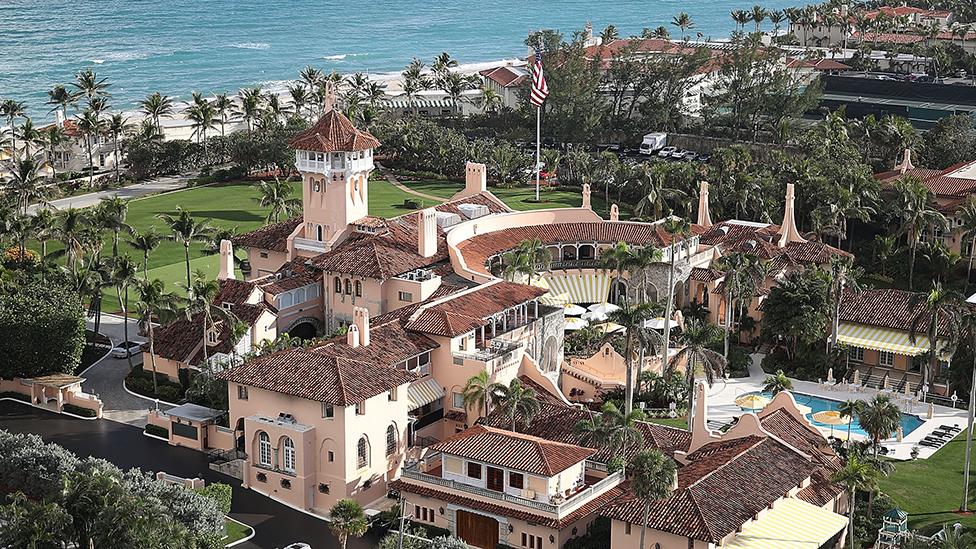Key takeaways from Donald Trump's 'overwhelming' fraud trial defeat
- Published
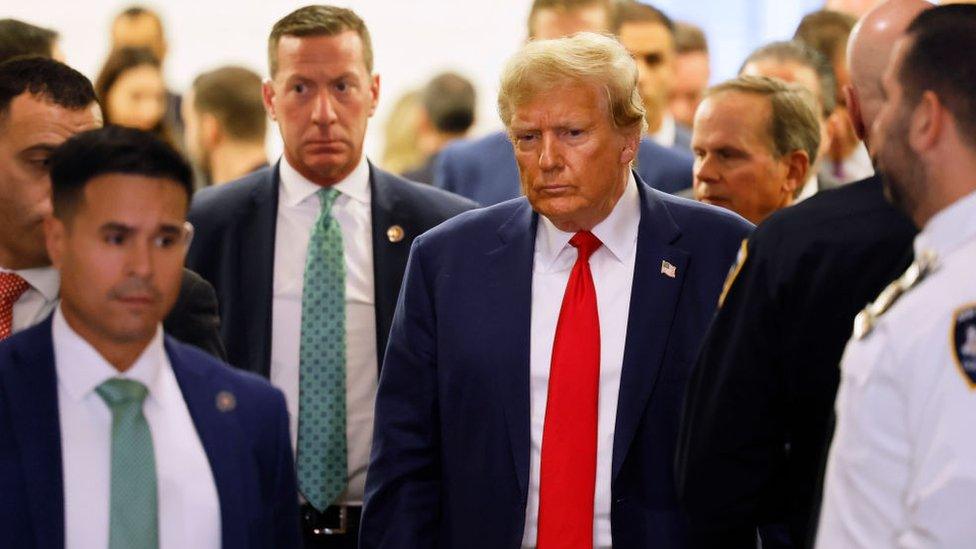
Donald Trump leaves the New York fraud trial.
In a stunning blow to his business empire, Donald Trump has been found liable for almost $355m (£281m) in penalties by Justice Arthur Engoron, in a long-awaited conclusion to the billionaire's fraud trial.
The judge issued a further shock to the real estate personality once synonymous with Manhattan's skyline, barring him from doing business in New York for three years.
Justice Engoron broadly sided with Attorney General Letitia James' argument that the Trump Organization should pay a steep price for fraudulently misrepresenting their assets in order to get more favourable loans and interest rates over the course of years.
While the judge backtracked on an earlier, controversial decision that threatened to dissolve many of Mr Trump's businesses in New York, his judgement still represents a serious setback for the 77-year-old.
Here are the key things to know about Justice Engoron's decision and its impact.
1. A crushing financial penalty for Trump
Mr Trump and his real estate organisation were ordered to pay $354,868,768 (£281m) in fines, just short of the amount Ms James had requested. This is an enormous sum, even for a billionaire.
Donald Trump Jr and Eric Trump, the former president's two sons who currently run the Trump Organization, must pay $4m each in fines. Allen Weisselberg, the former chief financial officer of the Trump Organization, must pay $1m.
The defendants may also have to pay heavy interest on their fines, potentially adding millions more to the total. Ms James estimated that the sum Mr Trump owes could eventually come to $463.9m.
"It is an overwhelming defeat for the former president on all counts," said Mitchell Epner, a white-collar attorney in New York.
Mr Trump will likely appeal Justice Engoron's decision. But to stay the verdict pending the appeal, he will have to put up the entirety of the fine within 30 days.
And the penalties come hot on the heels of the $83.3m a jury recently ordered him to pay the writer E Jean Carroll for defaming her. Combined, the two might represent more cash that Mr Trump has free.
There are a few ways he could find the money, and all those routes might face complications.
"He's got to think about what to do with his assets, how to perhaps liquidate businesses to come up with that money," Sarah Krissoff, a former federal prosecutor, said ahead of the ruling.
2. Trumps barred from doing business in New York, but not forever
Justice Engoron barred Donald Trump from doing business in New York for three years. His sons, Eric and Donald Jr, are barred for two years.
Ms James had asked for a lifetime ban for Mr Trump, but Justice Engoron opted for a shorter length of time.
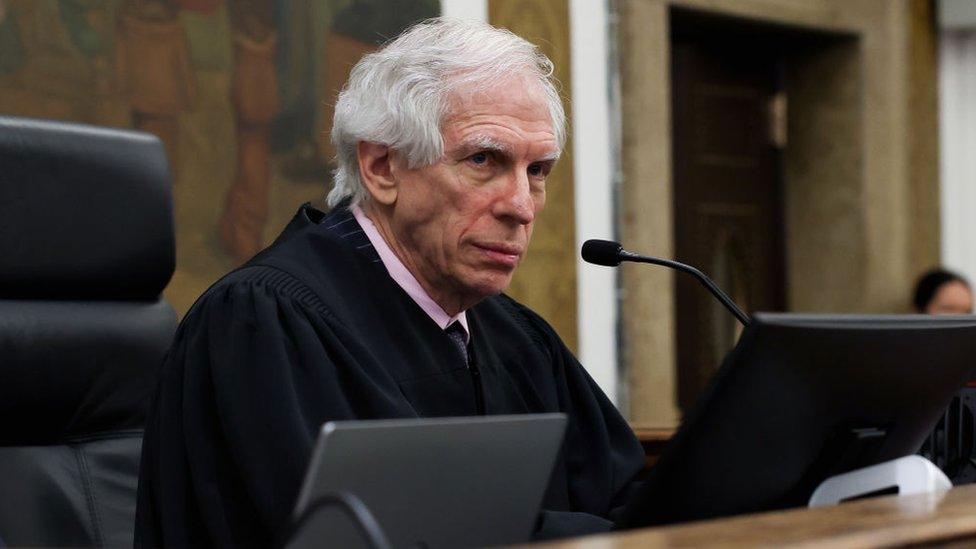
Justice Arthur Engoron oversees Trump's New York fraud trial.
These days, Mr Trump does not spend much time in the city where he built his empire, and most of his recent visits have been for court dates. Instead, he has established himself firmly in Florida, a far more favourable political climate.
And the order will not apply outside the state. Mr Trump has other business and properties around the country and the world, and Justice Engoran's order would not stop him from being involved with them.
Nonetheless, the ruling seriously curtails his ability to do business in a city home to some of his most valuable assets, Steve Cohen, a professor at New York Law School, told the BBC.
The verdict "does everything in this court's power to eliminate the ability of Donald Trump, and those who operate on behalf of Donald Trump to do business in the jurisdiction over which this court has authority: New York state," said Mr Cohen.
3. Judge walks back a controversial initial ruling and Trump Organization will still exist
One of the biggest questions ahead of the decision was whether Justice Engoron would stick with an initial ruling from September, which ordered the dissolution of Mr Trump's businesses in New York.
Legal experts had serious questions about whether the sweeping anti-fraud statute Ms James used to bring the case applied to Mr Trump's businesses that took the form of limited liability companies (LLCs). Judge Engoron's earlier ruling had covered those businesses, but today, he walked that back.
Instead, he subjected those companies and the Trump Organization to strict oversight, and any decisions about the "restructuring and dissolution" of Mr Trump's LLCs will fall to an overseer.
This revision will make it less likely for Justice Engoron's decision to be overturned on appeal.
"Self-correction is always wiser than being reversed," Mr Cohen observed.
The Trump Organization will continue to exist in a modified, and heavily scrutinized form, he explained.
But even though the worst outcome - the dissolution of Mr Trump's New York businesses - was avoided, the ruling was still an incredibly broad interpretation of the anti-fraud law, Mr Cohen added.
4. Court monitor will keep company under a microscope
Even though the ruling was very detrimental to Mr Trump, he got a slight reprieve when Justice Engoron decided to keep an independent monitor in place for at least three years.
Justice Engoron could have also appointed a receiver to oversee Mr Trump's businesses, which would have had even more control over their operations, Mr Cohen explained. An independent monitor, while still a serious oversight, is a slightly less severe option.
"Instead of being placed in a straitjacket, in a locked room, under guard, they're being put in handcuffs, in a locked room, under guard," Mr Cohen observed.
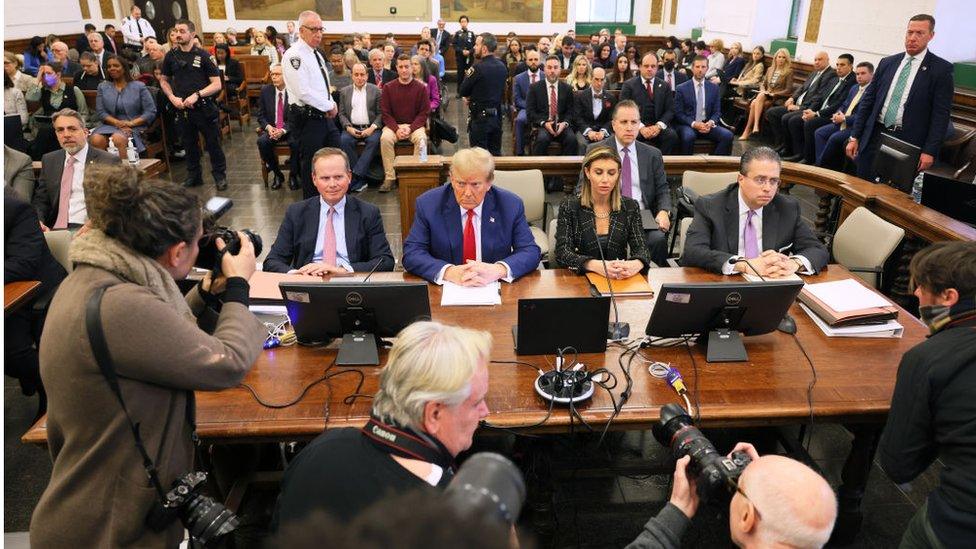
Trump attends his New York fraud trial.
Still, the independent monitor will have broad authority to keep Mr Trump's businesses in line.
The monitor, Barbara Jones, will get to appoint an independent director of compliance to work under her, and the Trump Organization will have to pay them.
"By installing this additional layer, this compliance director, it's a person who's literally sitting at Trump Organization, and nothing can go out, nothing can be issued without that person approving," said Diana Florence, a former federal prosecutor.
"It's a big deal and it's certainly should have the impact of stopping any misstatements on financial records."
5. Ruling lays bare Trump's controversial business practices
Justice Engoron cited extensive evidence from throughout the trial to underscore his ultimate decision.
And he did not hold back when laying out his justification for such a harsh ruling. At one point he quoted the British poet Alexander Pope: "To err is human, to forgive is divine."
"Defendants," Justice Engoron wrote, were "apparently are of a different mind".
"Their complete lack of contrition and remorse borders on pathological," he said. "Yet, defendants are incapable of admitting the error of their ways. Instead, they adopt a 'See no evil, hear no evil, speak no evil' posture that the evidence belies."
"This trial has made clear just how sloppily the Trump Organization is run as a business when it comes to its financial practices," said Will Thomas, a professor at University of Michigan's Ross School of Business.
With additional reporting from Madeline Halpert in New York City.
Related topics
- Published16 February 2024
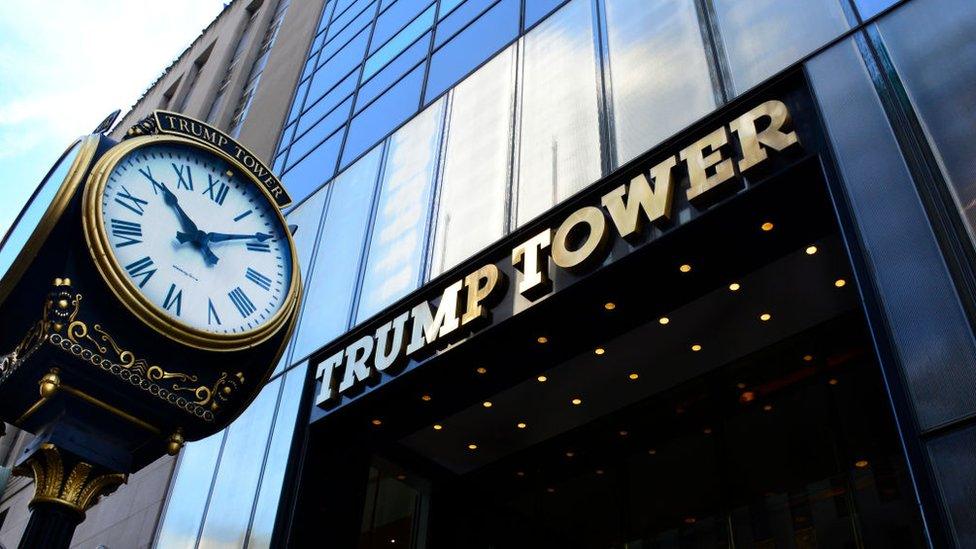
- Published17 February 2024
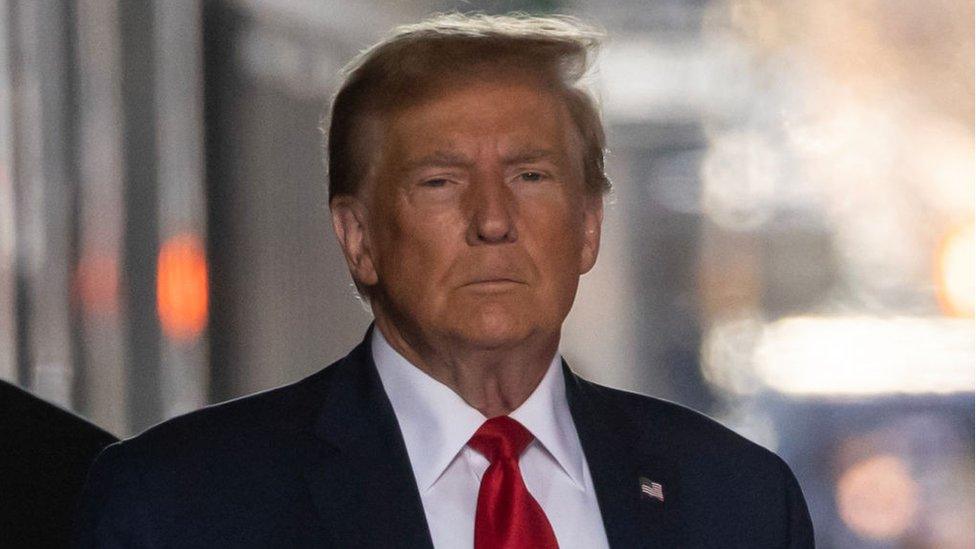
- Published11 December 2023
